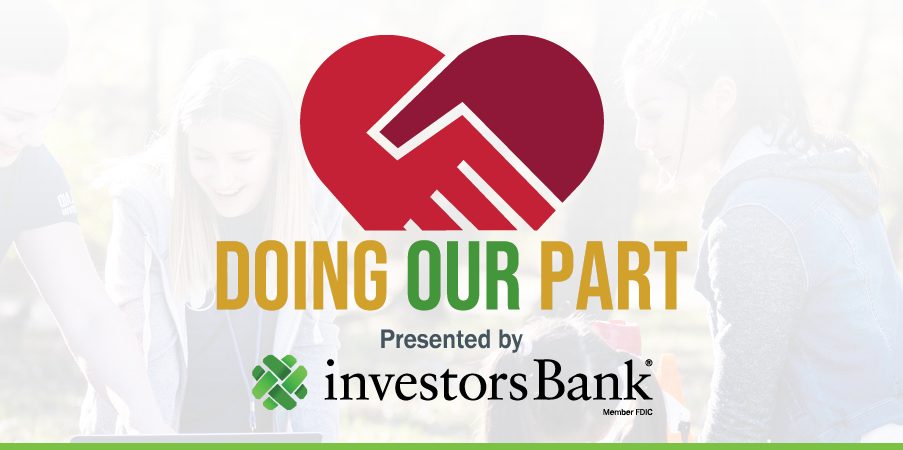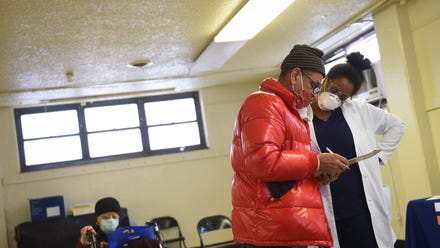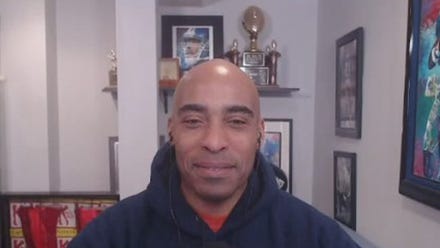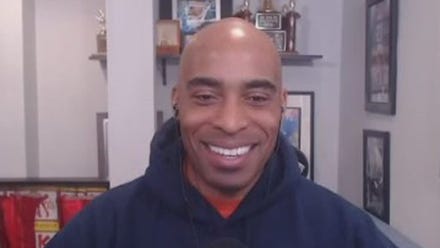
-
‘Doing Our Part:’ Inspiring Organizations With Inspiring Stories
Post Views: 915Executive Produced and Edited by Neil A. Carousso
Investors Bank is proud to present “Doing Our Part,” an important series of interviews created to spotlight New York and New Jersey organizations working for the well-being of the communities they serve.
Whether providing food for those in need, helping struggling businesses or offering programs for local youth, these organizations play a critical role. The Investors Foundation recognizes their impact and supports them in their efforts. Watch and listen to the interviews below to learn how these inspiring organizations are doing their part.
https://player.vimeo.com/video/492300187
https://player.vimeo.com/video/493775975
https://player.vimeo.com/video/495869386
https://player.vimeo.com/video/498019515
https://player.vimeo.com/video/500198342https://player.vimeo.com/video/498479546https://player.vimeo.com/video/498478890https://player.vimeo.com/video/498479319https://player.vimeo.com/video/498479213For the past 15 years, the Investors Foundation has helped support local civic-minded organizations and initiatives with contributions of more than $40 million. Learn about the Investors Foundation and its activities, including how it may be able to help your organization.
-
State of Black New York: The Racial Divide in Health Care and Education
Post Views: 639By Lynda Lopez, Marla Diamond and Steve Burns, WCBS Newsradio 880
NEW YORK (WCBS 880) — Over the next three weeks, WCBS Newsradio 880 is going to be spending time digging into a comprehensive report released by the New York Urban League titled, “The State of Black New York.”
We at WCBS 880 and Entercom New York are pleased to partner with the New York Urban League to shine the spotlight on issues of inequity in our community in important areas like health care, education, the digital divide, social justice, the economy, and civic engagement.
https://omny.fm/shows/880-weekly-rewind/special-report-the-state-of-black-new-yorkArva Rice, President and CEO of the New York Urban League, said the organization utilized data from Robin Hood & Columbia University’s Poverty and Early Childhood Poverty Trackers and also worked with United Way and the New York Women’s Foundation to provide statistical information on how African Americans are faring in comparison to their White counterparts.
“It’s really important for us to release the ‘State of Black New York’ report this year,” Rice said. “Our national office releases the ‘State of Black America’ on an annual basis and we had not released the ‘State of Black New York’ in over 10 years. In conjunction with our centennial, we wanted to be able to have a clearer baseline of how African Americans were doing in several key areas.”
The report not only lays out issue and statistics, it also includes actionable steps to facilitate change.
“It is important for us to shine the light on inequality, but to also provide some concrete strategies and policy suggestions on how to close those disparities and close those gaps,” Rice said.
As we tackle the report, this week reporters Marla Diamond and Steve Burns focus on health and education.
THE RACIAL DIVIDE IN HEALTH CARE
According to the New York Urban League report, one in four Black adults in New York City faced a health problem in 2018.
Today, they are twice as likely to die from COVID-19 than White people — making up 28% of deaths from the virus despite being only 22% of the city’s population.
Elisabeth Benjamin, Vice President of Health Initiatives at the Community Service Society, said this is the result of the state’s 30-year pro-market agenda.
“This is what structural racism looks like in the health care field. So in the 90s, we eliminated any semblance of regional health planning and centralized it up in Albany with a committee controlled by private and voluntary hospitals,” Benjamin said. “Although charities in name often do not act in very charitable ways toward their patients.”
Reimbursement rates were deregulated, allowing the most powerful hospital systems to get stronger, pushing out smaller community hospitals serving poor Black neighborhoods. The health care burden was pushed onto the city’s hospital system, which strained under the weight of the pandemic.
“So that’s why you see the New York Times and many, many articles about what was going on in Elmhurst, which was sort of the last hospital standing in Queens, versus what was going on in sort of well-heeled Manhattan hospitals,” Benjamin said.
The COVID crisis has revealed layers of inequities that The Rev. Calvin Butts sees firsthand at the Abyssinian Baptist Church in Harlem.
“The virus becomes a problem because cancer is still a problem; the virus becomes a problem because heart disease is still a problem; the virus becomes a problem because diabetes is still a problem. So this really digs deep into an underlying reality that we have not been getting adequate health care in our communities,” Butts said. “And we could go even deeper — the lack of doctors, the lack of nurses, the lack of information.”
The church was the first house of worship in the state to offer the COVID-19 vaccine.
“And we have found that by having the site for vaccinations in the community, in the church, we had more people coming to receive the vaccine who feel more comfortable, who are dealing, they believe, with trusted voices from the community — their pastor, their church, their officers at the church — and this has been extremely successful. We vaccinated now over 1,000 people,” Butt said.
Vaccines are providing some peace of mind. It’s been hard to come by in a community dealing with the twin pandemics of the virus and racial injustice, said Dr. Jamila Codrington, past president of the New York Association of Black Psychologists.
“I’ve had to make more referrals to other clinicians, outpatient mental health facilities, substance abuse clinics, shelters. It’s not just mental health, but domestic violence rates are increasing, alcoholism and drug use is increasing, and these are all comorbidities with mental health,” she said.
A 2017 New York Department of Health report found African Americans are more likely to experience serious mental health problems, but less likely to receive follow up visits after hospitalizations.
Dr. Codrington said that is changing with culturally responsive messaging.
“We have therapy for Black girls, therapy for Black men, and they are making a difference,” she said.
Yet, finding a Black therapist can be difficult, especially for low income New Yorkers.
The American Psychological Association found Black psychologists make up just 4% of all psychologists nationwide.
The New York Urban League’s report was conceived before the COVID-19 pandemic and, as a result, had to be updated because some of the racial disparities were only compounded in the last year.
“The report was designed and ready to go out for distribution and COVID hit our communities and we had this inkling that COVID might impact us more than other places,” Rice said. “As you look at the issues having to do with underlying health issues that face the African American community, we found that COVID started to reach our communities at a higher level.”
So can it be fixed quickly?
“Quickly probably not, but it can be addressed,” Rice said. “There are specific strategies that we need to put in place in order to close that divide that include education, that include access to quality health care, that include dispelling some of the myths, and being able to have access to and encourage healthy eating.”
THE RACIAL DIVIDE IN EDUCATION
Another area where the gap is wide is in education.
According to the New York Urban League report, Black students are two times more likely to fall below proficiency levels in English than their White peers, and three times more likely in math.
As a result, graduation rates and completion rates in high schools for Blacks are much lower than Whites.
The report cites many possibly reasons.
Our Steve Burns takes a look at a few of them.
Jamaal Bowman, U.S. representative for New York’s 16th congressional district, said before he became a middle school principal, he often found himself on the other side of the principal’s desk.
“I was a hot mess in school,” said Bowman. “I used to get in a lot of trouble, I was acting out. I was in the dean’s office a lot. I was handcuffed as a student in middle school.”
In high school, he said he was suspended multiple times — punishments for actions that Bowman now realizes were a product of his environment.
“My father wasn’t around, constantly lying to me telling me he was coming to see me and not showing up. I was angry and frustrated about that, but I didn’t know how to communicate any of that, so that manifested with me acting out at school,” Bowman said.
The congressman says it’s that holistic approach, the understanding that kids come to school with some baggage that should transform our idea of discipline.
“Too often it’s a child acts up, the child is discarded,” Bowman said.
While suspensions have fallen dramatically during Mayor Bill de Blasio’s time in office they are still disproportionately being issued to students of color and students with disabilities, often leading to worse academic performance, more dropouts, and more of the behavior that was being discouraged in the first place.
“White children are looked at as being rambunctious or mischievous, Black and Latino children tend to be looked at as criminal and harmful and dangerous,” Bowman said. “Our kids they’re coming to school with so much on their plates.”
Moving to a restorative approach on discipline would be a big step forward.
“We need to have more policies around ensuring our schools have more social workers and counselors and child psychologists,” Bowman said.
For him, the transformation came when he was able to move to New Jersey to a new environment and center himself through football.
“And ultimately I became an All State football player and ended up playing football in college, so I was lucky. There are millions of kids who don’t get that opportunity,” Bowman said.
From elementary school tests scores, to SAT scores, to graduation rates, the racial disparities in New York City schools are clear.
“So many patterns become entrenched very early on in terms of the life trajectory of our students,” said Paula White, the executive director of Educators for Excellence.
She said universal pre-K for the city was a big step forward, but the momentum shouldn’t be lost.
“Just making sure that the school system is good enough that when they enter that it won’t flatten the gains,” White said.
One way to do that is through AP, or advanced placement courses, but White said there are hurdles for students of color.
“In some districts there is a recommendation process and what that actually does is it serves as a gatekeeper to who can actually take the classes,” White said.
Teacher biases can come into play, as can language barriers.
Despite more Black students enrolling in AP courses in recent years, the New York Urban League says the percentage who pass their AP tests has gone down.White said enrollment on its own is a step in the right direction.
“Exposure to rigor bodes well for later success and persistence in college,” White said. But removing those hurdles to enrollment would help even more. “If there’s just sort of universal access, if you elect to take the course then that just gets rid of one area.”
COVID has had a damaging impact on all communities when it comes to education, but especially those of color, where resources were already thin. So the question now is how do we recover from these losses?
Rice believes recovery will take years.
“When schools closed and moved to digital learning there were some young people who never turned on their computers,” Rice said. “They did not turn on their computers in some cases because individuals did not have them; they did not turn on their computers because there was not the one on one relationship in order to keep that engagement going with individual students; there were families that had four and five children and only access to one laptop. As a result, we are going to be having students who have lost months and months of education, months and months of support, in addition to things like proms and graduation parties and helping support filling out their college applications. The impact of that is going to be felt for years so we’re going to need to develop and create additional supportive services for young people.”
Rice is hopeful for the future and encourages people to do even more work in school buildings and to volunteer at churches, mosques and synagogues to become mentors and reading coaches.
“I have to implore people to be take this as their opportunity to be the change that they have been wanting to see in the world, but if we don’t do anything, if we don’t act in a different way, if we don’t respond to this unbelievable moment in time, then yes, we will lose a generation,” Rice said.
In the weeks ahead, we will be tackling the other issues in the report in greater detail such as civic engagement, the digital divide, the economy and social justice.
https://omny.fm/shows/880-weekly-rewind/new-thinking-on-reopening-schools-and-sports-venueNeil A. Carousso produces The 880 Weekly Rewind with Lynda Lopez Friday nights at 7 PM on WCBS Newsradio 880. Listen to this week’s full show on the media player above.
-
Small Business Spotlight: Retired Giant Tiki Barber Extends His run with Key Business Pivots
Post Views: 662By Joe Connolly and Neil A. Carousso
NEW YORK (WCBS 880) — Retired running back Tiki Barker is elusive and quick on the gridiron and in the boardroom.
Barber played ten seasons in the NFL with the New York Football Giants. Since retiring, he has followed his passion for business in which he earned his degree from the University of Virginia.
“What I learned, obviously from my football career but also my early business career, is that relationships are invaluable,” he told Joe Connolly and Neil A. Carousso on the WCBS Small Business Spotlight.
When the market crashed in 2008, the three-time Pro Bowler had to get out of an affordable housing partnership he entered with billionaire real estate developer Stephen Ross after he retired from the league in 2006. But, the relationship he formed and maintained with The Related Companies chairman and Miami Dolphins owner led to an opportunity years down the road when Ross invested in Thuzio – the events company Barber co-founded in 2012.
“How you manage those relationships are of paramount importance for things down stream,” Barber explained.
He finds it liberating to find new ways of doing business. That realization came when Thuzio was forced to make a halftime adjustment amid the coronavirus pandemic.
It moved online and hosted private virtual business talks with celebrity speakers, including “Shark Tank” star and FUBU founder Daymond John, retired New York Jets linebacker Bart Scott and executive chef Josh Capon. Barber and his partners later changed the business model to make all virtual events free because their presenting sponsors were willing to pay a premium for more viewers.
“More importantly, you want qualified eyes,” he said, adding, “You want to know who your audience is.”
The “Tiki & Tierney” co-host told WCBS 880 they create events for their sponsors to target specific business executives and groups who are likely potential clients. For example, sports betting operator DraftKings sponsored a Thuzio virtual talk with Barber and retired New York Mets captain David Wright.
“We have this aggregation of business executives who you specifically want to talk to and we’re bringing them together over a shared passion for sports or food or wine or business information,” Barber said of Thuzio’s appeal to sponsors.
The company hosts about 35 virtual events a month, which he said would be near impossible for them to pull off in-person. Thuzio grew from eight employees to 15 in the pandemic amid rising demand for content.
Barber’s business mindset has been shaped by his mentors and experiences in the NFL. The Giants great told Connolly and Carousso he was inspired by Jon Gruden’s motivational tactics. Gruden was the head coach for the Tampa Bay Buccaneers where his twin brother Ronde Barber played cornerback and won a Super Bowl in 2002.
“We all have things that disrupt our lives,” Tiki said, noting the hardships suffered in the pandemic. “Sometimes, you have to get up and fight for yourself and fight forward for your country and as an individual. And, that’s essentially what (Gruden) was saying.”
Barber tries to portray positivity and enthusiasm among his employees, because, as Barber recalled Gruden’s message, “It’s not just for you, it’s for people who are around you.”
Football is a team sport and the ex-Giant used it as an analogy in business throughout the Small Business Spotlight conversation. Giving the play-by-play of his Giants team record 95-yard touchdown run against the Oakland Raiders on December 31, 2005, he emphasized the blocking by his teammates that catapulted him into the end zone that Saturday night.
“Understanding that it takes everyone even those who don’t show up on the big screen in order to be successful” is the mantra that guides Barber’s post-football career.
Watch Joe Connolly and Neil A. Carousso’s conversation with Tiki Barber on the Small Business Spotlight video above.
-
NY State Sen. Gustavo Rivera to Gov. Cuomo: Acknowledge Your Mistakes
Post Views: 619By Neil A. Carousso
NEW YORK (WCBS 880) — New York officials aim to fix inequities in its vaccine distribution after a damning report this week that showed white New Yorkers received 48 percent of the city’s COVID-19 vaccines while Blacks received 11 percent of the doses, 15 percent went to Asians and another 15 percent to Latinos.
New York State Sen. Gustavo Rivera (D-NY-33), the chair of the health committee, called on Governor Andrew Cuomo (D-NY) to listen to his public health experts in the wake of nine state health officials resigning over the Governor’s public disparagement of experts’ guidance in responding to the pandemic, as reported by The New York Times.
https://omny.fm/shows/880-weekly-rewind/vaccine-inequity-kaepernick-and-the-super-bowl-and“If you have made a mistake, Governor, acknowledge it, and then, try to move forward and build from that and listen to folks who are experts who can help you make better choices in the future,” Sen. Rivera addressed Gov. Cuomo on The 880 Weekly Rewind with Lynda Lopez. “Sometimes, he just doesn’t,” he added.
Lopez also asked him about the recent report from New York Attorney General Letitia James that showed the Cuomo administration undercounted nursing home deaths “by as much as 50 percent.”
“The reason why this data is so important is for us to make better policy to make certain that we can avert unnecessary deaths,” sad Sen. Rivera, noting he chaired 30 hours of hearings on the impact of COVID-19 in nursing homes last summer without cooperation from the Cuomo administration.
Hear Lopez’s full interview with Sen. Rivera on The 880 Weekly Rewind podcast above, plus how former San Francisco 49ers quarterback Colin Kaepernick’s presence looms large over Super Bowl LV, and “The Good Life” of legendary singer Tony Bennett whose wife revealed was diagnosed with Alzheimer’s Disease four years ago.
Neil A. Carousso produces The 880 Weekly Rewind with Lynda Lopez Friday nights at 7 PM on WCBS Newsradio 880.
-
‘I’m a little bit biased:’ Tiki Barber playing favorites for Super Bowl LV
Post Views: 634By Neil A. Carousso and Joe Connolly
NEW YORK (WCBS 880) — Tiki Barber, who played ten seasons for the New York Football Giants, is playing favorites ahead of the big game.
The three-time Pro Bowl running back opened up to WCBS 880’s Joe Connolly and Neil A. Carousso after recording a Small Business Spotlight interview about his events company Thuzio, which is set to publish on Wednesday.
“I’m a little bit biased,” Barber admitted, revealing, “Bruce Arians, who is the head coach of the Tampa Bay Buccaneers, was roommates with my father at Virginia Tech and so I’ve known him since I was born, basically.”
The “Tiki and Tierney” co-host on CBS Sports Radio and CBS Sports Network said he grew up with Arians who started as a quarterback for the Hokies and won two Super Bowls as the wide receivers coach and offensive coordinator for the Pittsburgh Steelers in 2005 and 2008.
“The thing that I look for, that I’m looking for, is how these two teams are coached and how are they prepared to take on these extraordinarily amazing challenges in competition.”
Kansas City Chiefs Head Coach Andy Reid coached against Barber’s Giants as the long-time leader of their NFC East rival Philadelphia Eagles. Reid won his first Super Bowl as a head coach last year when the Chiefs beat the San Francisco 49ers 31-20.
“We have two amazing stories at the head coaching position whether it’s Bruce’s long journey or Andy Reid who is now in the top four, five of all time because of how successful he’s been,” Barber said. “I think that story besides all the great ones with the players that’s the one that I look to and it gives me the most interest mainly because I have a personal connection.”
Barber has another connection to this year’s Super Bowl: His twin brother, Ronde, was the star cornerback for the 2002 Bucs championship team. That was Tampa Bay’s only Super Bowl appearance until this season.
“That was the last time they won a playoff game was back in 2002 as crazy as that sounds,” said Barber.
While the 2002 Buccaneers were known for their impermeable defense, the 2020 Bucs are riding on their high-flying offense orchestrated by their 43 year old quarterback, Tom Brady, who has won six Super Bowl titles in his nine appearances in the big game as a member of the New England Patriots.
Brady’s first of three Super Bowl losses came at the hands of Eli Manning and the Giants – one-year after Barber retired, which he humorously brought up with Connolly and Carousso.
“Tom Brady’s two years younger than me. I’m retired for 14 years; he’s still playing,” Barber said, laughing. “It’s unreal how successful he’s been.”
In fact, this week, when Brady was asked if he’d be up for playing past age 45 he said, “I would definitely consider that.”
Tiki told WCBS 880 he never thought any team was just “one player away,” noting the team sport. “That’s never true until this year.”
Watch Joe Connolly and Neil A. Carousso’s conversation with Tiki Barber about Super Bowl LV above.
Latest
Social Feeds

VIDEO: Told the airline to book us on the next flight out (SPONTANEOUS TRIP!)

VIDEO: The Taylor Swift Effect | WCBS Business Breakfast

VIDEO: Future of NYC | WCBS Business Breakfast

VIDEO: Reasons for New Yorkers to be Optimistic | WCBS Business Breakfast

VIDEO: NYC's AI Chatbot | WCBS Business Breakfast






